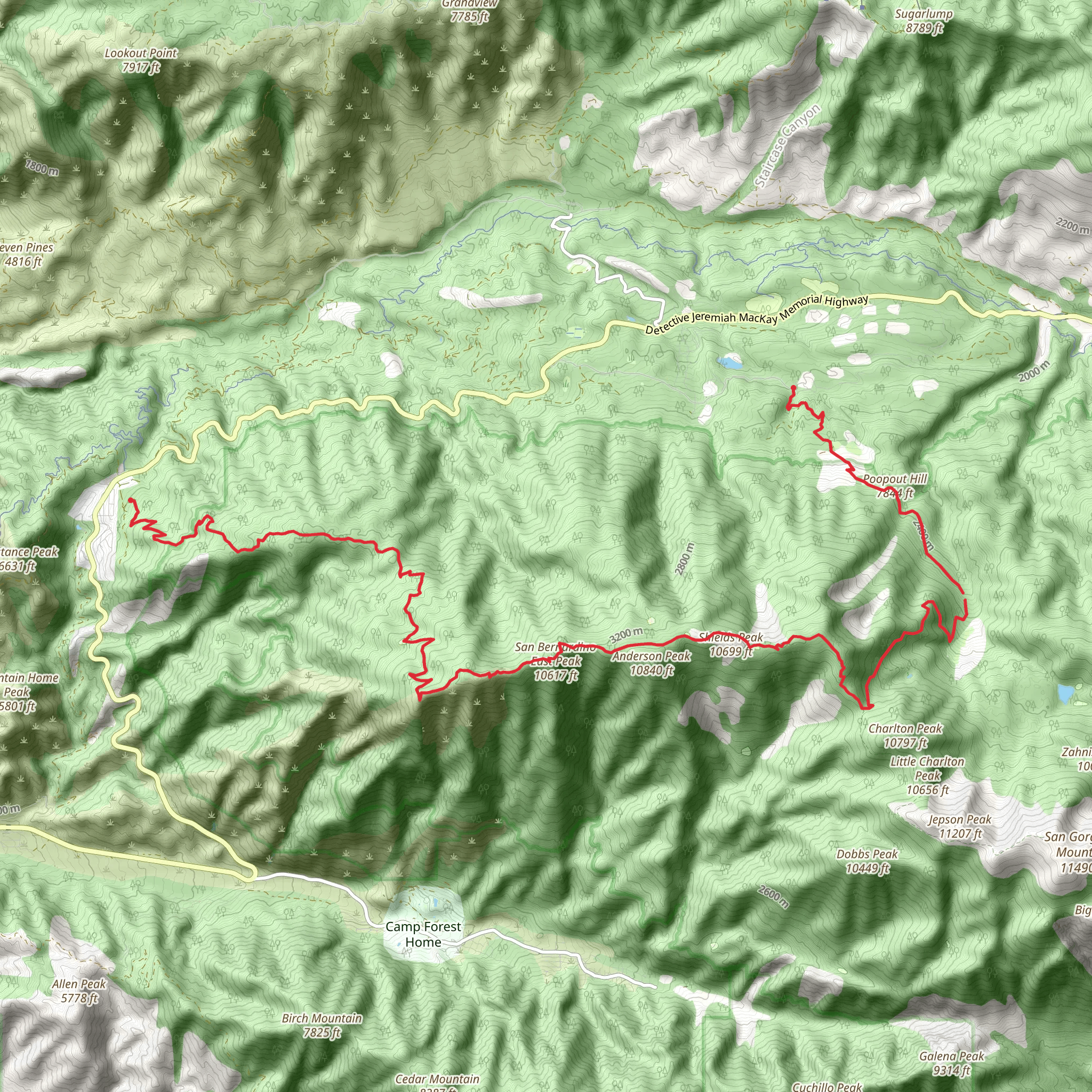Download
Preview
Add to list
More
30.0 km
~2 days
1620 m
Multi-Day
“Tackle the rugged beauty and historical tapestry of the San Bernardino Mountain Traverse; a hiker's demanding delight.”
Embarking on the San Bernardino Mountain Traverse is a challenging yet rewarding experience that spans approximately 30 kilometers (about 18.6 miles) with an elevation gain of around 1600 meters (approximately 5250 feet). This point-to-point trail is nestled in the heart of San Bernardino County, California, and is considered difficult due to its length and elevation profile.
Getting to the Trailhead
To reach the starting point of the trail, hikers can drive to the Angelus Oaks area, which is the nearest significant landmark to the trailhead. For those relying on public transportation, options may be limited, and it's advisable to check the latest schedules and routes that can get you as close to Angelus Oaks as possible. From there, a taxi or a ride-share service might be necessary to reach the trailhead.
Navigating the Trail
The trail begins near the quaint community of Angelus Oaks, where hikers will find themselves immediately immersed in the natural beauty of the San Bernardino National Forest. It's essential to have a reliable navigation tool like HiiKER downloaded on your mobile device, as it will be invaluable for staying on track and aware of your progress.
Landmarks and Scenery
As you ascend, the trail offers breathtaking views of the surrounding mountains and valleys. One of the first significant landmarks you'll encounter is San Bernardino Peak, which stands at an elevation of 3,150 meters (10,340 feet). This peak provides a panoramic vista that includes the Inland Empire, and on clear days, you might even catch a glimpse of Catalina Island.
Continuing along the ridge, you'll traverse through a diverse range of ecosystems, from chaparral to pine forests, which are home to an array of wildlife including mule deer, black bears, and various bird species. The trail also passes by the remains of old mining operations, a nod to the region's historical significance during the California Gold Rush era.
Historical Significance
The San Bernardino Mountains have a rich history, with indigenous peoples having lived in the area for thousands of years. The Serrano tribe, in particular, called these mountains home. The region also played a role during the Gold Rush and later in the development of Southern California's water resources.
Preparation and Safety
Given the trail's difficulty, it's crucial to be well-prepared with adequate water, food, and layers of clothing to accommodate the changing temperatures at higher elevations. The weather can be unpredictable, so check the forecast before setting out and be prepared for sudden changes.
Wildlife and Flora
Keep an eye out for the diverse flora along the trail, including the rare San Bernardino Mountain sunflower and the endemic Limber Pine. The trail is also a habitat for the endangered mountain yellow-legged frog, so be mindful of the wildlife and practice Leave No Trace principles to preserve their environment.
Conclusion
In conclusion, the San Bernardino Mountain Traverse offers an unforgettable hiking experience for those prepared to tackle its challenges. With its rich history, diverse ecosystems, and stunning views, it's a trail that promises adventure and natural beauty at every turn.
What to expect?
Activity types
Comments and Reviews
User comments, reviews and discussions about the San Bernardino Mountain Traverse, California.
5.0
average rating out of 5
2 rating(s)

